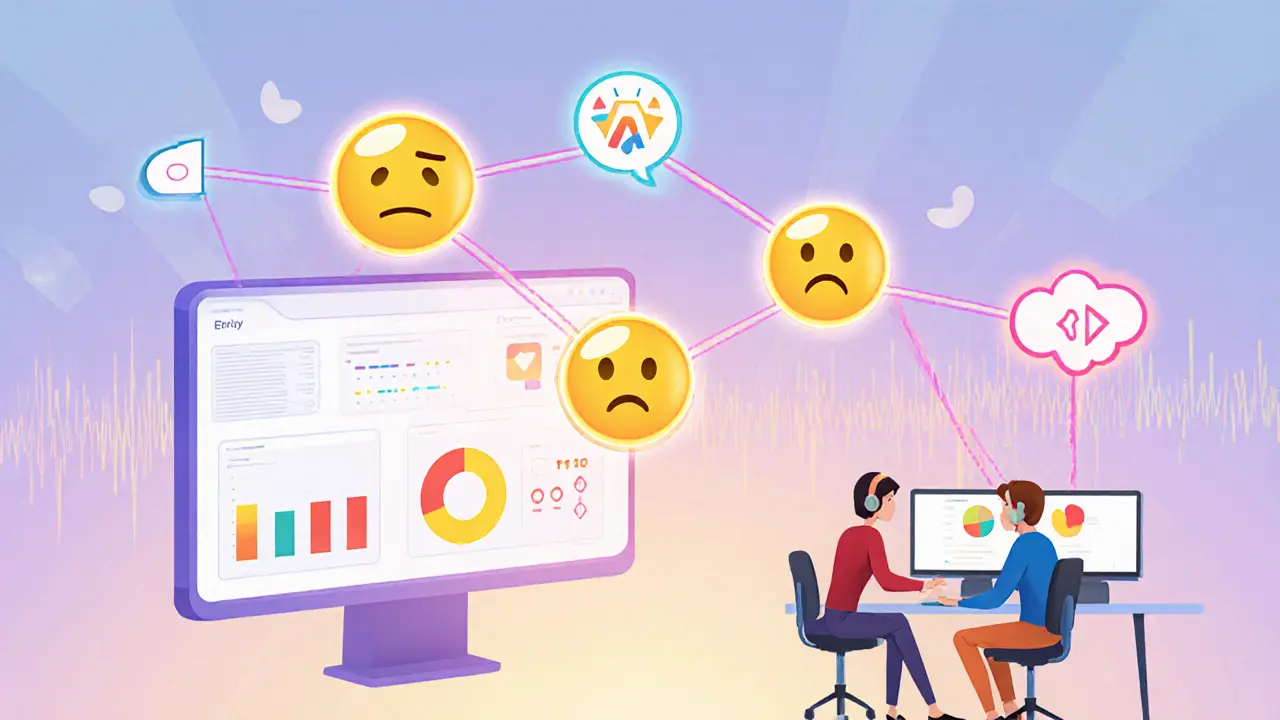Sentiment analysis tools use AI to detect customer emotions in real time, helping businesses reduce churn, improve support, and predict behavior. Learn which tools work best in 2025 and how to use them without overcomplicating things.
Customer Sentiment Tools: How to Track What Crypto Users Really Think
When you're trading crypto, price charts don't tell the whole story. What people are saying on Twitter, Reddit, and Telegram often moves markets before any technical indicator does. That's where customer sentiment tools, software that scans public conversations to measure mood and opinion around cryptocurrencies. Also known as crypto sentiment analysis, these tools turn noise into signals—helping you spot hype, fear, or quiet confidence before it hits the charts. These aren’t just fancy dashboards. They’re survival tools in a space where a single viral tweet can crash a coin—or launch it.
Real users don’t wait for press releases. They talk. And they’re loud. When the DAO governance, a system where token holders vote on project decisions without central control of a project gets criticized, sentiment tools pick up the drop in positive mentions days before token sales stall. When a new airdrop, a free distribution of tokens to attract users and build community drops, sentiment spikes—especially if the team is silent. Tools like these helped traders avoid VAEX and YodeSwap before they vanished. They also flagged SpaceY 2025’s real buzz, not just the marketing fluff. Sentiment doesn’t predict the future. But it shows you what the crowd believes right now—and in crypto, belief is often the only currency that matters.
These tools don’t need you to be a coder. Most integrate with platforms you already use: Discord, X (Twitter), and crypto forums. They track mentions, tone, volume, and even emoji use. A sudden flood of "FOMO" or "rug pull" comments? That’s not coincidence. It’s data. And it’s why smart traders don’t just watch price graphs—they watch the chatter. The posts below show you exactly how sentiment tools exposed fake coins like XREATORS, caught dead exchanges like CPDAX, and helped users avoid scams before they lost money. You’ll see how sentiment analysis turned noise into action—and how you can do the same.
